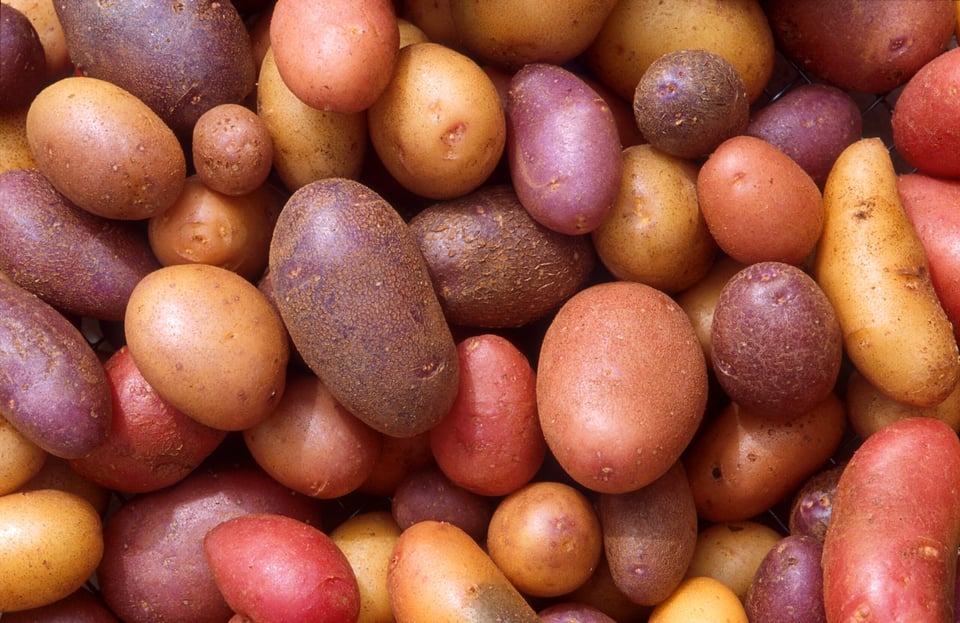

French Fries And The Evolving Natural
My doctor recently advised me to cut down on the carbs. While my blood sugar level is thankfully still safe, it’s inching up as I march through middle age. So I am trying my best to resist things like French fries.
Following my doctor’s advice feels like a struggle against the modern world. The twenty-first century food industry provides much of humanity with cheap, tasty carbohydrates that are helping to drive pandemics of diabetes and other disorders.
But the way we think about modern foods can lead us into biological error. Modern foods are bad, the thinking goes, because our bodies were not meant to survive on them. Staying healthy means going back in time—perhaps to the time when our great-grandparents couldn’t buy cheap French fries. Or perhaps further back, to the time of our hunter-gatherer ancestors.
This line of thought assumes that our bodies evolved for a particular diet in the distant past and then did not change. We love carbs because they were a good source of energy but hard to find—so we benefited by gorging when we found carb-rich food. But then modern technology led to French fries and other carb-rich foods that we could eat in quantities far beyond what our ancestors could find. Our bodies could not absorb all the sugar produced from these foods, leading to all sorts of problems with our health.
The more scientists explore our history, the more cracks they expose in this line of thinking. No sharp barrier divides our biological past and our technological present. Evolution did not stop once humans built tools and towns. In fact, some new forms of technology have rewritten our DNA.
Which brings me back to French fries. Chopped, fried, and sprinkled with salt, they are irresistible. But if you were to pull a potato out of the ground and try eat it like an apple, you’d be able to resist it very easily. The starch in raw tubers exists in tough, hard-to-digest fibers.
Our distant hominin ancestors would have gotten very little nutrition from raw tubers. But that changed when they learned how to make fires. Now they could cook all sorts of food, using heat to break down tough molecules and unlock energy and nutrients. Wild tubers may have been among the new foods on their menu.
As I wrote in my New York Times column this week, it looks as if these hunter-gatherer chefs evolved an adaptation to their new diet. They gained extra copies of a gene for an enzyme in their saliva that breaks down starch, transforming it into sugar. And they passed those new copies down to their descendants.
Starting about 12,000 years ago, some hunter-gatherers domesticated wild plants and became farmers. Among their crops were wheat, barley, and rice—grains rich in starch. In Peru, people in the Andes domesticated starch-rich potatoes about 5000 years ago.
The new studies reveal a second wave of amylase evolution: after the agricultural revolution, natural selection strongly favored people with extra copies of the gene. And people in Peru seem to have experienced the strongest selection, carrying as many as 11 copies of the amylase gene.
Our biology reflects hundreds of thousands of years of eating cooked starch, in other words, and much of that change has occurred in just the past few thousand years.
This story bears some striking parallels to the story of milk, as I wrote about in this 2022 column. A mutation that allowed people to produce a milk-digesting enzyme as adults became common after some societies began herding cattle and other milk-producing animals. Is it “natural” to drink milk as an adult? Perhaps it is, if you happen to carry the right mutation. If you lack it and suffer from lactose intolerance, you can always take a lactase pill to enjoy a bowl of ice cream in comfort.
Just because humans have evolved extra amylase genes for eating starch, that doesn’t mean that a plate of French fries is going to be good for you. But it does raise the question of whether some people are at greater risk of diseases like diabetes than others, based on how many amylase genes they have inherited. Perhaps someday people will pop an amylase pill before tucking into a plate of fries.
You just read issue #179 of Friday's Elk. You can also browse the full archives of this newsletter.